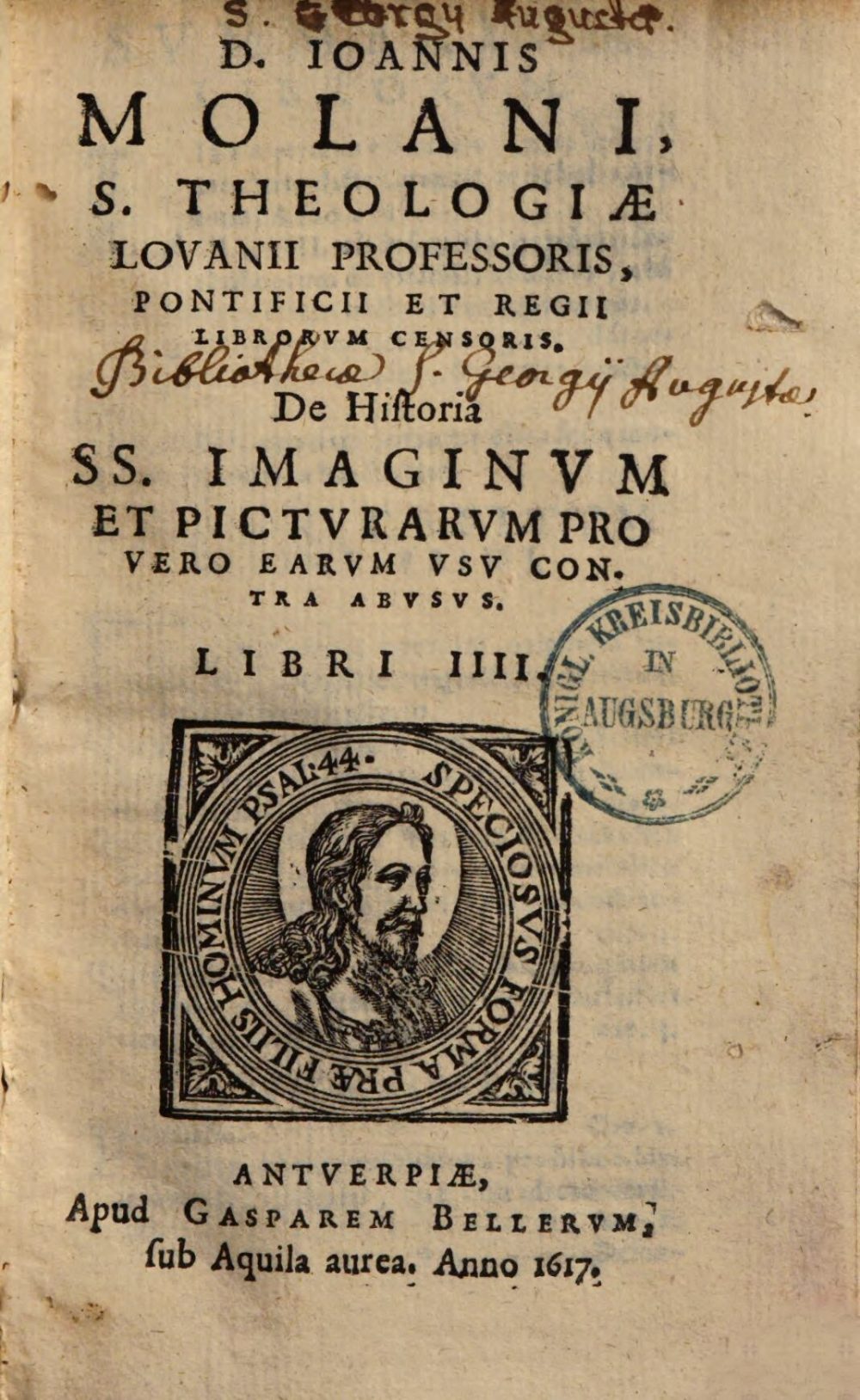
Augsburg, Staats- und Stadtbibliothek — Th H 1475. Digital Reproduction: München, Bayerische Staatsbibliothek, 2015.
Molanus calls for the prohibition of sacred and profane paintings that deliberately discuss, recount or teach indecent or obscene matters, like is the case for books.
“The Council of Trent forbids all books which deliberately discuss, recount or teach indecent or obscene matters since account must be taken not only of the faith but also of the morals of those who may easily be prone to corruption from books of this sort: how much more, then, are paintings of this kind to be forbidden, not only in the case of sacred images but also of profane ones. For, as the pagan poet correctly said: ‘What the mind takes in through the ears stimulates it less actively than what is presented to it by the eyes, and what the spectator can see and believe for himself.'”
“Prohibet Tridentinae Synodi, omnes libros qui res lascivas seu obscoenas ex professo tractant narrant aut docent; cum non solum fidei, sed et morum, qui eiusmodi librorum lectione facile corrumpi solent, ratio habenda sit: quanto ergo magis prohibendae sunt huiusmodi picturae, non tantum in sacris imaginibus, sed etiam in prophanis? Nam ut recte dixit gentilis Poeta: ‘Segnius irritant animos demissa per aures
Quam quae sunt oculis subiecta fidelibus, et quae Ipse sibi tradit spectator.'”
David Freedberg, “Johannes Molanus on Provocative Paintings. De Historia Sanctarum Imaginum et
Picturarum, Book II, Chapter 42″, Journal of the Warburg and Courtauld Institutes, 1971, Vol. 34 (1971), pp. 229-
245.



